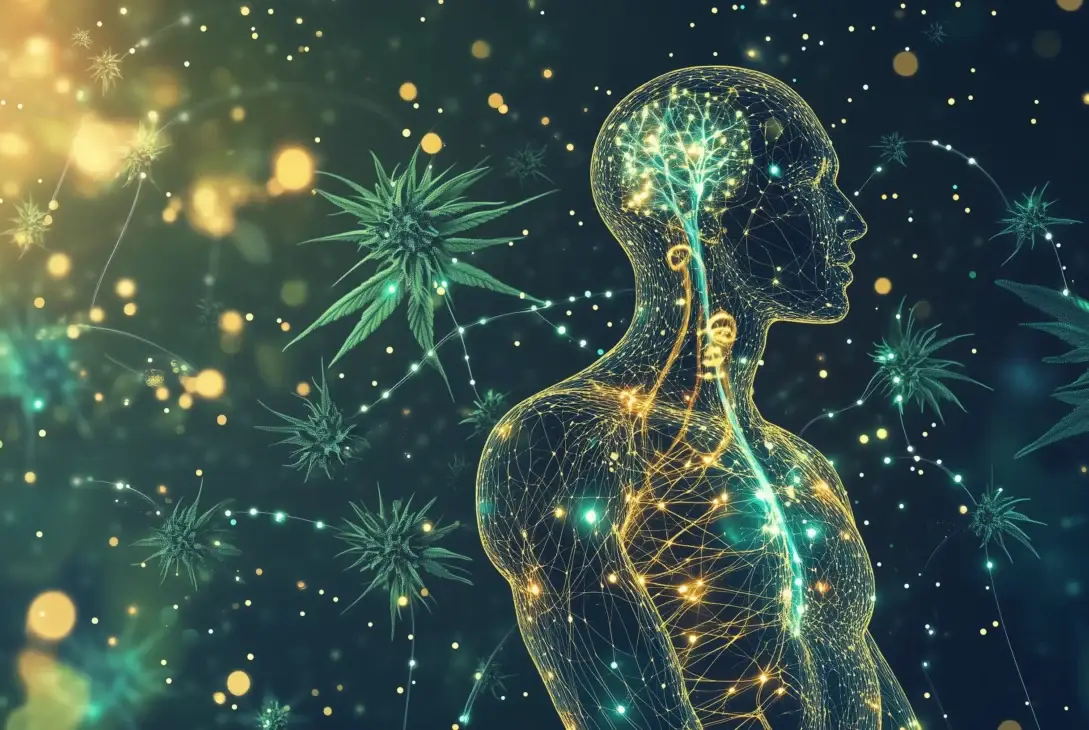How CBD Interacts with the Human Body: A Comprehensive Guide
Cannabidiol, or CBD, has captivated the wellness world, promising various health benefits and appealing to an ever-growing audience. While many people are eager to reap the advantages of CBD, a deeper understanding of how it interacts with the human body can enhance your experience and choices when using CBD products. This guide explores the fascinating mechanisms at play, emphasizing the endocannabinoid system, the effects of CBD on various bodily functions, and considerations regarding its use alongside other medications.
The Endocannabinoid System: A Key to Understanding CBD
At the heart of CBD’s interaction with the human body lies the endocannabinoid system (ECS). This complex cell-signaling system plays a vital role in maintaining homeostasis—the balance that keeps our body functioning optimally regardless of external changes. The ECS comprises a network of cannabinoid receptors, endocannabinoids, and metabolic enzymes.
The primary players in the ECS are:
- CB1 Receptors: Found mainly in the brain and central nervous system, CB1 receptors influence mood, memory, pain perception, and cognitive functions.
- CB2 Receptors: More commonly located in the immune system and peripheral tissues, CB2 receptors are integral to managing inflammation and immune responses.
This delicate balance and interplay within the ECS highlight its central importance to how CBD functions within our biology.
How CBD Interacts with the Endocannabinoid System
Unlike THC, which binds directly to the CB1 receptors to create its well-known psychoactive effects, CBD takes a different approach. Here’s how CBD engages with the ECS:
- Indirect Interaction: CBD acts more like a facilitator. By interacting with various non-cannabinoid receptors and neurotransmitters, it helps modulate the ECS’s activity rather than directly activating receptors.
- FAAH and MAGL Inhibition: CBD inhibits two key enzymes—fatty acid amide hydrolase (FAAH) and monoacylglycerol lipase (MAGL). These enzymes typically break down endocannabinoids like anandamide (AEA) and 2-arachidonoylglycerol (2-AG). By inhibiting these enzymes, CBD increases the levels of these naturally occurring endocannabinoids, further supporting the ECS’s role in regulating bodily functions.
Effects of CBD on the Human Body
The interaction between CBD and the ECS leads to a variety of effects on physical and mental health. Here are some prominent benefits:
Anxiety and Stress
Evidence points to CBD’s promise in reducing anxiety and stress levels. Studies have shown that many who struggle with anxiety disorders experience significant relief when taking CBD. Its calming effects may stem from its interaction with the ECS, leading to improved mood and emotional regulation.
Sleep
Struggling to catch some Zs? CBD can potentially enhance sleep quality by addressing underlying issues such as anxiety and pain, allowing individuals to fall asleep faster and maintain peaceful slumber throughout the night.
Chronic Pain Management
Many users have reported that CBD helps them manage chronic pain, whether from inflammation, injury, or neuropathic sources. Its ability to modulate pain perception and inflammation makes it an appealing option for those seeking alternatives to traditional pain medications.
Neurological Disorders
Clinical trials have established CBD’s efficacy in treating severe epilepsy syndromes, such as Dravet syndrome and Lennox-Gastaut syndrome. The FDA has even approved the use of Epidiolex, a CBD-based medication, which has been shown to reduce the frequency of seizures in affected patients.
Support for Addiction Recovery
Emerging research suggests that CBD may assist in treating addiction-related disorders by lessening cravings and anxiety associated with withdrawal. Findings from animal and preliminary human studies indicate CBD can help combat urges to engage with addictive substances.
Potential Interactions with Medications
While CBD shines with its therapeutic potential, it’s not without caveats. Understanding how CBD interacts with other medications is crucial for ensuring safe usage:
- CYP450 Enzymes: CBD can influence the cytochrome P450 enzyme system, particularly the CYP3A4 enzyme, which is responsible for metabolizing around 60% of clinically prescribed medications. This interaction may lead to unintentional increases in drug levels within the bloodstream, heightening the risk of side effects.
- Consultation is Key: Always consult a healthcare provider before incorporating CBD into your routine, particularly if you are on other medications. Professional guidance is essential to monitor potential effects on your liver function and overall health.
Actionable Tips for Safe CBD Usage
If you choose to explore the benefits of CBD, consider these practical tips:
- Consult Your Doctor: Have an open discussion about your health and medications with a healthcare provider to determine if CBD is suitable for you.
- Start Low and Go Slow: Begin with a low dose of CBD, gradually increasing as needed while tracking any changes in your health or side effects.
- Prioritize Quality: Invest time in selecting CBD products from reputable sources that provide transparency around their testing for purity and effectiveness.
- Monitor and Adjust: Keep a health journal. Document any changes experienced when starting CBD and communicate them with your healthcare provider for personalized advice.
Conclusion
CBD’s intricate interaction with the human body is a tapestry woven through the endocannabinoid system, influencing various aspects of our health. From anxiety relief to improved sleep and pain management, the potential of CBD is aligning with scientific research and anecdotal experiences alike. However, it’s essential to remain cautious, staying informed about possible interactions with medications and engaging with healthcare professionals to ensure safe usage.
By educating yourself about CBD’s effects and implementing a carefully considered approach to its use, you can unlock its benefits while safeguarding your health journey.




















